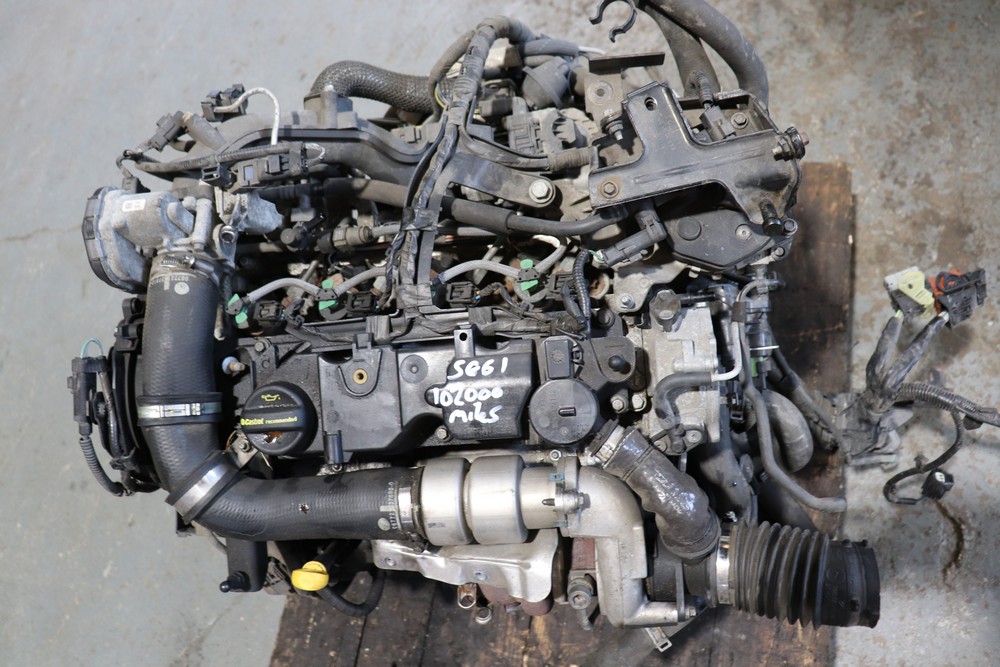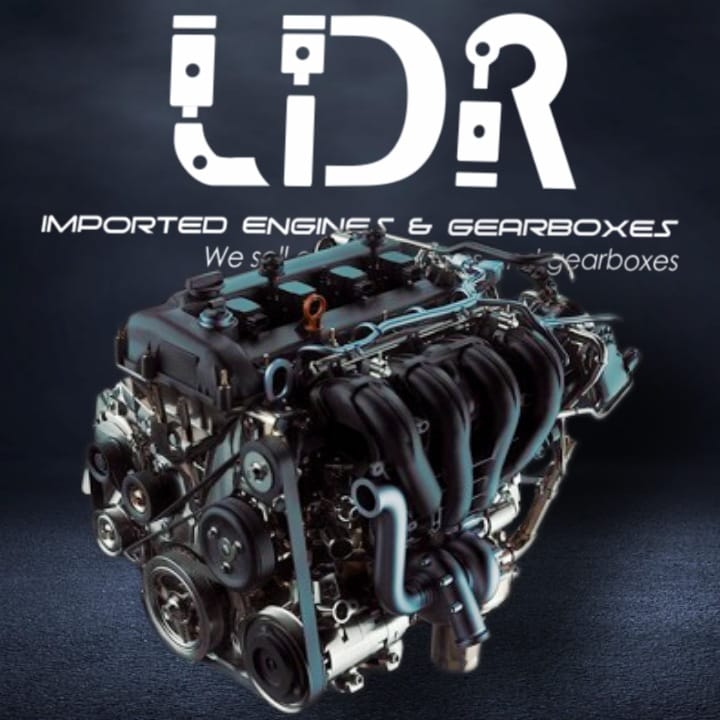What to Look for When Buying a Used Ford Fiesta Engine
What to Look for When Buying a Used Ford Fiesta Engine
Blog Article
The Future of Engines: Innovations Driving Lasting Power Solutions
As the automobile industry browses the critical shift in the direction of sustainability, the future of engines is increasingly specified by groundbreaking advancements. Electric engine developments, along with appealing growths in hydrogen gas cells and biofuels, are reshaping the landscape of power services. The development of crossbreed systems additionally complicates this evolution, presenting both possibilities and challenges to lower exhausts properly. Combined with the combination of man-made knowledge in engine layout, these technological strides increase crucial concerns concerning their long-term practicality and influence on typical paradigms. What might this imply for the sector and customers alike?
Electric Engine Advancement
The advancement of electrical engine advancements symbolizes a pivotal shift in the aerospace and vehicle sectors, driven by the immediate demand for lasting options to fossil fuels. This change is identified by substantial developments in battery innovation, power electronic devices, and electrical motor design, which jointly enhance the efficiency and efficiency of electric engines.
Recent developments have resulted in the creation of lighter, much more energy-dense batteries, such as lithium-silicon and solid-state batteries, which guarantee longer varieties and much shorter charging times. Furthermore, improvements in electrical motor efficiency, such as the use of permanent magnets and advanced cooling down systems, allow electric engines to operate successfully under varying problems. These enhancements not just boost lorry performance but also add to a reduction in total power usage.
Furthermore, the integration of sophisticated software application algorithms has actually maximized power management in electric lorries, permitting regenerative stopping and predictive billing approaches. As producers progressively accept electrical propulsion, the aerospace and auto industries are seeing a paradigm shift in the direction of greener modern technologies. This development not just fulfills governing demands but additionally aligns with customer preferences for ecologically friendly transportation options, solidifying electric engines as a keystone of future lasting flexibility.
Improvements in Biofuels
As the automobile and aerospace industries progressively focus on lasting power resources, improvements in biofuels arise as a corresponding remedy to electrical engines. Biofuels, originated from organic materials such as crops, waste, and algae, provide a cutting-edge avenue for decreasing greenhouse gas exhausts and reliance on nonrenewable fuel sources.
Current research study has concentrated on enhancing the performance and sustainability of biofuel production. Second-generation biofuels utilize non-food feedstocks, reducing competitors with food supply and reducing ecological impact. Additionally, improvements in synthetic biology have allowed the design of bacteria to generate biofuels better, bring about higher returns and lower manufacturing expenses.
In addition, the development of drop-in biofuels permits smooth assimilation into existing facilities, making it possible for a smoother shift for markets traditionally reliant on fossil gas. ford fiesta engine. These fuels can be used in present engines without alterations, promoting their fostering throughout various sectors
Investments in biofuel technology, along with encouraging plans, are necessary to drive technology and scalability. As the international area looks for to combat climate modification, biofuels provide a practical, prompt service that straightens with the overarching objective of sustainability in transport and aeronautics.
Hydrogen Gas Cell Innovation
A growing number of business and scientists are discovering hydrogen fuel cell modern technology as a viable option to standard source of power in transport and power systems. This modern technology converts chemical power from hydrogen into electrical power via an electrochemical reaction, with water as the only by-product, making it an environmentally friendly alternative.
The core of hydrogen fuel cells is the gas cell stack, where hydrogen molecules are split into protons and electrons. The flow of electrons generates electrical power, while protons move with a membrane to combine with oxygen from the air, developing water. This process try this web-site causes high effectiveness and reduced discharges, positioning hydrogen fuel cells as a vital gamer in the transition to lasting power.
Considerable innovations have actually been made in improving the sturdiness and efficiency of fuel cells, along with reducing costs through cutting-edge manufacturing strategies. The development of hydrogen manufacturing methods, such as electrolysis powered by renewable energy sources, improves the sustainability of the general system. As framework for hydrogen refueling expands and manufacturing approaches become a lot more effective, hydrogen gas cell technology holds great promise for decarbonizing different fields, including heavy-duty transport and stationary power generation.
Hybrid Systems and Their Effect
Hybrid systems represent a substantial development in lasting engine innovation, merging traditional inner burning engines with electrical propulsion to enhance energy efficiency and reduce emissions (ford fiesta engine). This dual approach permits lorries to make use of both source of power, enabling better adaptability in energy usage and reducing dependence on fossil fuels

In enhancement to ecological advantages, crossbreed systems use consumers a feasible transition towards completely electric lorries. They minimize range anxiousness by combining the benefit of gas with the benefits of electrical propulsion, making them an attractive choice for a wider target market.
The Role of AI in Engine Layout
Leveraging advanced formulas and artificial intelligence strategies, the auto industry is significantly integrating expert system (AI) into engine style procedures. AI enhances the effectiveness and performance of layout by analyzing huge datasets to recognize optimal configurations and performance specifications. This ability permits engineers to replicate numerous operating problems and forecast engine actions under numerous circumstances, substantially minimizing the moment and price associated with standard prototyping techniques.
In addition, AI promotes the growth of innovative materials and combustion processes tailored for sustainability. By optimizing fuel effectiveness and lessening exhausts, AI-driven styles line up with worldwide efforts focused on lowering the carbon impact of vehicle engines. Maker understanding formulas can additionally anticipate maintenance needs, leading to improved integrity and durability of engine elements.
Moreover, AI contributes in the assimilation of electrification innovations, such as hybrid systems, where it can optimize battery monitoring and power recovery processes. go to this web-site As the sector moves towards even more lasting power options, the function of AI in engine style ends up being progressively crucial, driving technology and enhancing the performance of future engines. Ultimately, the partnership in between AI and engine layout proclaims a new age of smarter, cleaner, and much more reliable automobile innovations.

Final Thought
Finally, the future of engines is being shaped by a convergence of ingenious modern technologies that focus on sustainability. Electric engine developments, biofuel advancements, hydrogen gas cells, and crossbreed systems jointly contribute to a significant reduction in discharges and environmental influence. In addition, the integration of expert system in engine design enhances efficiency and efficiency. These transformative remedies emphasize a dedication to developing a cleaner, a lot more lasting vehicle landscape, eventually benefiting both society and the environment.
Electric engine developments, along with appealing growths in hydrogen fuel cells and biofuels, are improving the landscape of power remedies. Additionally, enhancements in electric motor performance, such as the usage of irreversible magnets and advanced cooling systems, enable electrical engines to run efficiently under varying problems. By enhancing fuel efficiency and lessening exhausts, AI-driven styles align with international efforts aimed at lowering the carbon footprint of automotive engines. As the sector moves in the direction of more sustainable power solutions, the function of AI in engine style becomes progressively vital, driving innovation and boosting the efficiency of future engines. Electric engine improvements, biofuel developments, hydrogen fuel cells, and hybrid systems collectively add to a substantial decrease in exhausts and environmental impact.
Report this page